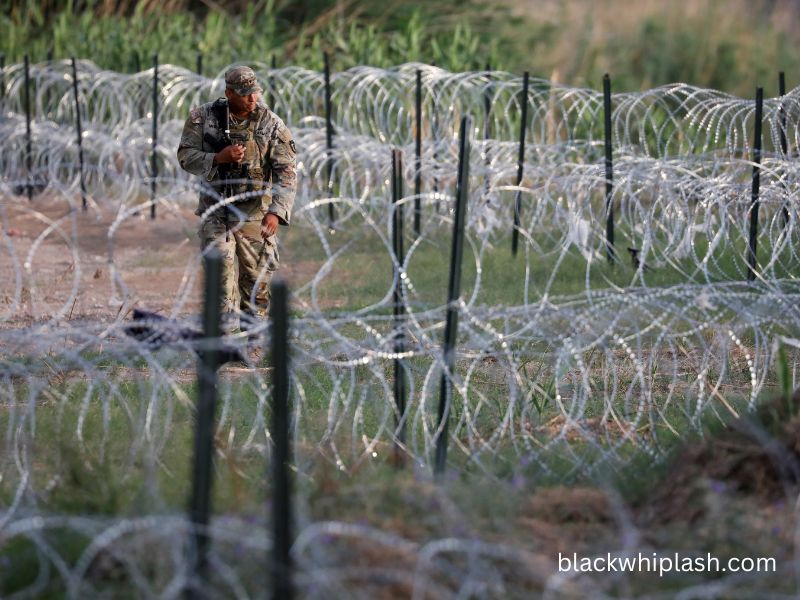Movsum Samadov is a name that has recently stirred discussions, especially regarding his alleged association with the U.S. border. His story intertwines with political activism, legal struggles, and human rights concerns. In this article, we will delve into the background of Movsum Samadov, his impact on global politics, and the legal battles he has fought—specifically focusing on the implications surrounding his connection to the U.S. border. We will explore how his case has sparked debate in the realm of international human rights, particularly focusing on his alleged activities that have led to significant legal consequences.
Early Life and Political Involvement
Movsum Samadov is known for his prominent role in the Islamic Party of Azerbaijan (IPA), a political group that has faced significant scrutiny due to its ideologies. His active participation in the party placed him under the spotlight of the Azerbaijani government, which led to his imprisonment on various charges. The political nature of these charges and the human rights concerns surrounding them highlight a long-standing tension between the government of Azerbaijan and its critics, including those abroad.
Samadov’s case became internationally recognized when he was arrested and sentenced to 12 years in prison in 2011 on charges related to his political activism. The circumstances of his arrest raised questions about the fairness of his trial, with many human rights organizations citing violations of his rights under international law.
The 2011 Trial and Aftermath
In 2011, Movsum Samadov was sentenced by the Baku Court of Serious Crimes, which concluded that his activities as a political figure posed a threat to national security. This trial was controversial because of the claims that it did not meet international standards for a fair trial, sparking a wave of international outcry. The European Court of Human Rights later ruled in Samadov’s favor, confirming that Azerbaijan had violated several of his human rights, including his right to a fair trial and his right to be free from unlawful detention. This ruling added a layer of complexity to his case, positioning it as a significant instance of political repression.
Samadov’s Struggle with the Azerbaijani Government
Samadov’s imprisonment was just the beginning of a larger struggle with the Azerbaijani government. His legal team has consistently argued that his charges were politically motivated, and they have fought for his release, citing violations of his rights under both Azerbaijani and international law. The European Court’s 2019 ruling was a turning point in his legal battles, with Azerbaijan being ordered to pay compensation to Samadov. However, this legal victory did not translate into immediate political change in Azerbaijan, where political dissidents often face severe consequences for challenging the government.
Samadov and His Alleged Connections to Extremism
While Movsum Samadov is primarily known for his political activism, his case has also attracted attention due to alleged connections to extremist groups. Reports have suggested that his name has appeared in discussions related to various global security concerns, particularly regarding radical Islamic factions. These allegations have contributed to his portrayal in the media as a controversial figure, further complicating his already fraught relationship with the Azerbaijani government and international authorities.
There are indications that his actions and affiliations may have influenced global security discussions, including his potential links to extremist elements that have made their way into Western nations. This context is critical when discussing his alleged presence at the U.S. border. His name has been associated with a variety of security risks, making his case even more significant in global politics. While there is limited direct evidence linking Samadov to any specific terrorist activities, his history of radical political views and imprisonment paints a complex picture of his role in international affairs.
Movsum Samadov at the U.S. Border
The most recent development in the Samadov saga involves his alleged encounter at the U.S. border. According to certain reports, Movsum Samadov’s name surfaced in discussions surrounding security concerns at the U.S. border, where officials were reportedly investigating the implications of his involvement with extremist groups. Although the details of these allegations remain murky, the fact that his name has been flagged in security reports suggests that he may be part of a broader conversation about border security and the potential infiltration of radical ideologies.
This revelation has sparked debates about how individuals with controversial political backgrounds are handled at international borders, particularly in light of the increasing threats posed by extremism and terrorism. The U.S. has stringent policies in place to prevent individuals associated with such threats from entering the country, and Samadov’s name being flagged could indicate that he was under scrutiny due to his past and his political associations.
Legal and Diplomatic Implications
Samadov’s potential presence at the U.S. border raises several legal and diplomatic questions. From a legal perspective, countries like the U.S. have specific procedures for dealing with individuals who may pose a national security risk. The screening process at the border is designed to filter out individuals who could threaten the safety and security of the nation, which includes individuals linked to terrorist organizations or radical political movements.
The diplomatic implications of this situation are also significant. If Movsum Samadov were indeed attempting to cross the U.S. border, it could strain relations between the U.S. and Azerbaijan. The political ramifications could extend beyond the U.S.-Azerbaijan relationship, affecting broader international diplomacy and security strategies. Countries are increasingly concerned about individuals attempting to exploit international borders for political or extremist purposes, and Movsum Samadov’s case could serve as an important test of how nations address such risks.
Conclusion
Movsum Samadov’s story is one of political struggle, legal battles, and international controversy. From his imprisonment in Azerbaijan to his alleged connections to extremist elements, Samadov has become a symbol of political repression and the complexities surrounding global security. His name now surfaces in discussions about U.S. border security, raising critical questions about how nations manage the intersection of politics, human rights, and national security.
As the world continues to grapple with the challenges posed by extremism and radical ideologies, figures like Movsum Samadov will undoubtedly remain central to discussions about international law, border security, and the balance between protecting human rights and ensuring national safety. Movsum Samadov’s case highlights the importance of vigilance at international borders and the need for robust legal frameworks to deal with individuals whose political activities may pose a security risk.
This article has provided a comprehensive overview of Movsum Samadov’s involvement at the U.S. border, his political struggles, and the broader legal and diplomatic context. As new developments unfold, it will be essential to monitor the ongoing implications of his case in the realms of international security and human rights.


